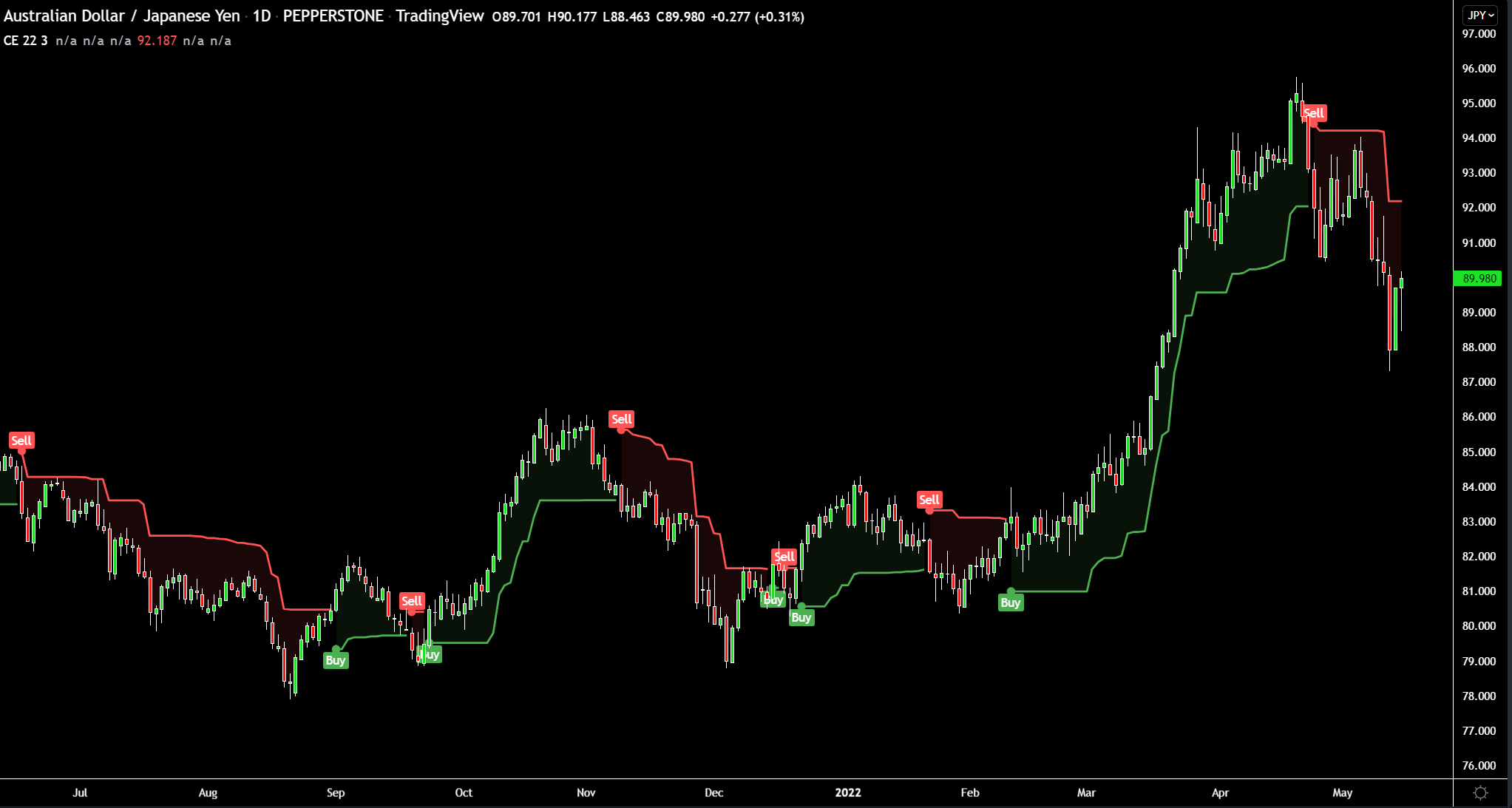Analysis
Trailing stop loss strategies in trending and momentum driven markets
.jpg)
The first strategy on the list is one which I’m sure some of you will be familiar with and that is modification of the standard multiple of ATR strategy. However, instead of manually calculating the points at which to place our stops, there is an automated indicator called the Chandelier stop/exit that we can use. The creator of this indicator recommends using an input period of 22 days and a multiple of 3xATR. This can obviously be tailored to suit your needs, but that’s the baseline recommended settings. We can see in the chart below how this would have allowed a trader who had initiated a long position in AUDJPY to ride the uptrend nicely with the Chandelier stop flashing a warning sign to exit the trade when price fell below the Chandelier green line (highest high – 3xATR). It also works on the short side as indicated by the sell label, when one decides to take a bearish view on the instrument they are trading.

(Source: Tradingview - Past performance is not indicative of future performance.)
The 2nd strategy involves the use of shorter-term more reactive (exponential) moving averages. It depends the time frame you trade on, but one could go as short as a 5 period EMA to a 21 period EMA. Using the same instrument, AUDJPY, we can see the 21-day EMA would have worked well in keeping the trade open and sending an exit signal when price closed below the moving average. A crossover strategy can also be used. It could be when the shorter-term moving average crosses below the longer-term moving average (when long) and vice versa when short.
(Source: Tradingview - Past performance is not indicative of future performance.)
The last strategy involves using the swing low of any pullbacks throughout the uptrend and vice versa for a downtrend. So as we can see in the graph below price retraced and made a swing low (circle) and the exit sign would have been when price closed below this level, indicated by the arrow.
(Source: Tradingview - Past performance is not indicative of future performance.)
Related articles
Ready to trade?
It's quick and easy to get started. Apply in minutes with our simple application process.
The material provided here has not been prepared in accordance with legal requirements designed to promote the independence of investment research and as such is considered to be a marketing communication. Whilst it is not subject to any prohibition on dealing ahead of the dissemination of investment research we will not seek to take any advantage before providing it to our clients. Pepperstone doesn’t represent that the material provided here is accurate, current or complete, and therefore shouldn’t be relied upon as such. The information, whether from a third party or not, isn’t to be considered as a recommendation; or an offer to buy or sell; or the solicitation of an offer to buy or sell any security, financial product or instrument; or to participate in any particular trading strategy. It does not take into account readers’ financial situation or investment objectives. We advise any readers of this content to seek their own advice. Without the approval of Pepperstone, reproduction or redistribution of this information isn’t permitted.

